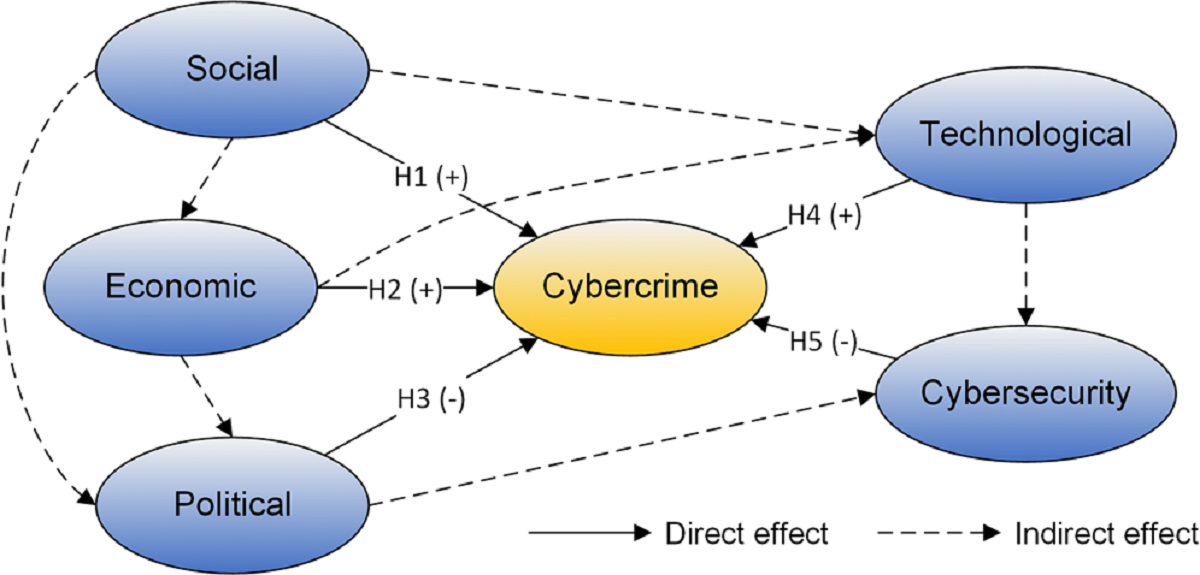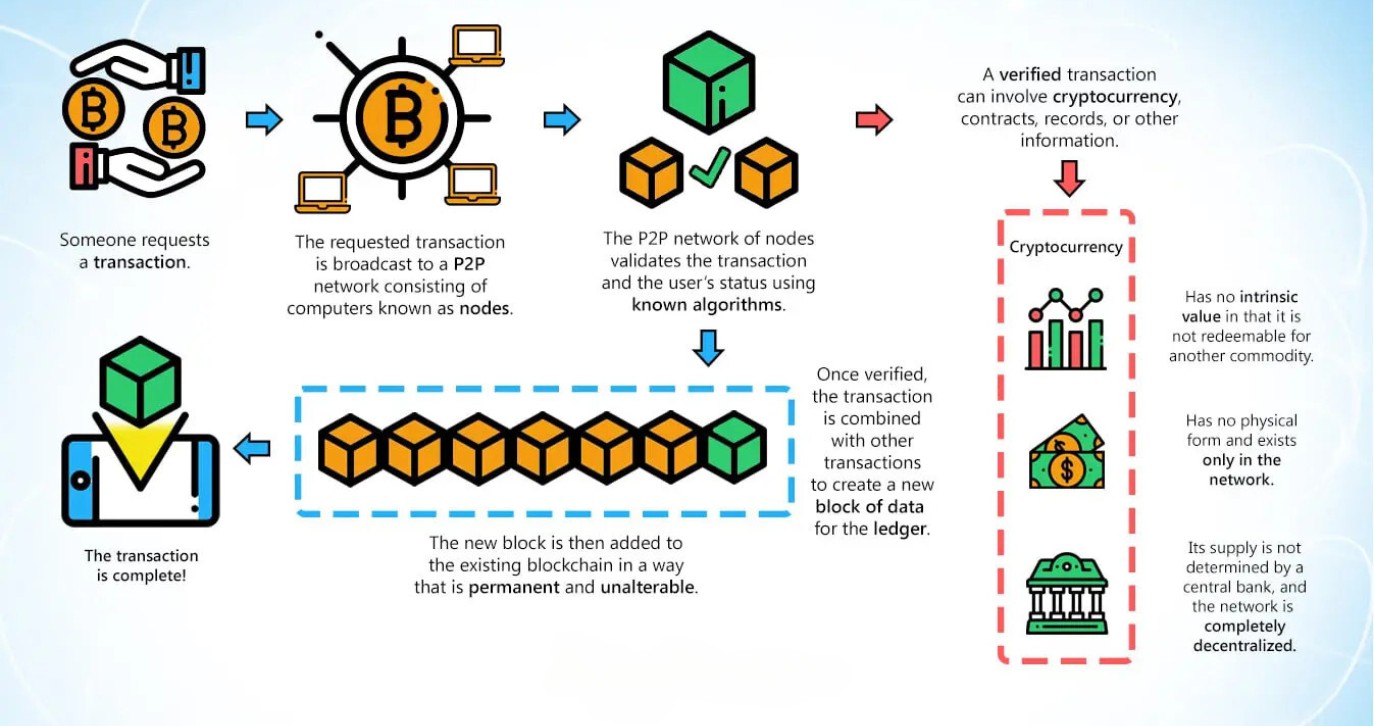What Is a Blockchain Engineer?
A blockchain engineer is a skilled professional who specializes in developing, implementing, and maintaining blockchain technology. Blockchain, a decentralized and transparent digital ledger, has gained immense popularity in recent years, particularly in the financial and technology sectors.
A blockchain engineer’s primary role is to design, develop, and deploy blockchain solutions, ensuring the security, efficiency, and scalability of the underlying technology. They are responsible for creating and managing the blockchain infrastructure, writing smart contracts, and implementing consensus algorithms.
Blockchain engineers play a crucial role in revolutionizing various industries by leveraging the power of blockchain. They enable decentralized applications, digital asset management, and secure transactions without the need for intermediaries.
With the rise of cryptocurrencies like Bitcoin and Ethereum, the demand for blockchain engineers has skyrocketed. These professionals are sought after by startups, financial institutions, and technology companies that aim to integrate blockchain into their operations and services.
Blockchain engineers possess a unique combination of technical and analytical skills. They should have a deep understanding of cryptography, distributed systems, and data structures. They are proficient in programming languages like Solidity, C++, Java, or Python, depending on the blockchain platform they work with.
Furthermore, a blockchain engineer must have a keen eye for detail and a problem-solving mindset. They should be able to identify potential vulnerabilities and design robust security measures to protect the blockchain network from attacks and hacks.
These professionals are also expected to stay up-to-date with industry trends and emerging technologies related to blockchain. They should be familiar with various blockchain frameworks and platforms such as Ethereum, Hyperledger, and Corda.
Overall, a blockchain engineer plays a pivotal role in driving innovation and transforming traditional processes across industries. Their expertise in blockchain technology allows organizations to streamline operations, enhance security, and foster trust in a decentralized world.
Introduction
Blockchain technology has emerged as a game-changer in various industries, revolutionizing the way transactions are conducted, data is stored, and trust is established. As this disruptive technology continues to redefine our digital landscape, the demand for skilled professionals who can navigate and harness its power is on the rise.
In this era of digital transformation, blockchain engineers play a pivotal role in shaping the future of technology and industry. They are the driving force behind the development, implementation, and maintenance of blockchain solutions, ensuring the security, transparency, and efficiency of decentralized systems.
Blockchain engineers possess a unique blend of technical expertise, creativity, and problem-solving skills. They are well-versed in programming languages, cryptography, and distributed systems, allowing them to design and build robust blockchain networks and smart contracts.
Their role goes beyond simply writing code. Blockchain engineers have a deep understanding of the underlying principles and concepts of blockchain technology. They navigate the complexities of consensus algorithms and cryptographic protocols to create secure and immutable digital ledgers.
With the rise of cryptocurrencies and the widespread adoption of blockchain in various industries, the need for blockchain engineers has never been greater. Organizations across sectors, including finance, healthcare, supply chain, and logistics, are embracing blockchain to enhance security, eliminate intermediaries, and streamline processes.
Blockchain engineers are at the forefront of this transformation, working closely with cross-functional teams to develop innovative solutions that leverage the power of blockchain. They collaborate with business stakeholders, software developers, and system administrators to ensure seamless integration and optimal performance of blockchain systems.
Becoming a blockchain engineer requires a combination of technical aptitude, continuous learning, and a passion for exploring new frontiers. This field offers exciting opportunities for those who are willing to adapt to evolving technologies and stay ahead of the curve.
In the following sections, we will delve deeper into the skills, qualifications, and educational background necessary to become a successful blockchain engineer. We will also explore the various career paths and job opportunities available in this rapidly growing field.
Join us on this journey as we dive into the world of blockchain engineering and uncover the endless possibilities that lie ahead!
Definition of a Blockchain Engineer
A blockchain engineer is a skilled professional who specializes in developing, implementing, and maintaining blockchain technology. Blockchain, a decentralized and transparent digital ledger, has gained immense popularity in recent years, particularly in the financial and technology sectors.
A blockchain engineer’s primary role is to design, develop, and deploy blockchain solutions, ensuring the security, efficiency, and scalability of the underlying technology. They are responsible for creating and managing the blockchain infrastructure, writing smart contracts, and implementing consensus algorithms.
Blockchain engineers play a crucial role in revolutionizing various industries by leveraging the power of blockchain. They enable decentralized applications, digital asset management, and secure transactions without the need for intermediaries.
With the rise of cryptocurrencies like Bitcoin and Ethereum, the demand for blockchain engineers has skyrocketed. These professionals are sought after by startups, financial institutions, and technology companies that aim to integrate blockchain into their operations and services.
Blockchain engineers possess a unique combination of technical and analytical skills. They should have a deep understanding of cryptography, distributed systems, and data structures. They are proficient in programming languages like Solidity, C++, Java, or Python, depending on the blockchain platform they work with.
Furthermore, a blockchain engineer must have a keen eye for detail and a problem-solving mindset. They should be able to identify potential vulnerabilities and design robust security measures to protect the blockchain network from attacks and hacks.
These professionals are also expected to stay up-to-date with industry trends and emerging technologies related to blockchain. They should be familiar with various blockchain frameworks and platforms such as Ethereum, Hyperledger, and Corda.
Overall, a blockchain engineer plays a pivotal role in driving innovation and transforming traditional processes across industries. Their expertise in blockchain technology allows organizations to streamline operations, enhance security, and foster trust in a decentralized world.
Skills and Qualifications
To excel as a blockchain engineer, certain skills and qualifications are essential. These encompass technical expertise, problem-solving abilities, and a deep understanding of blockchain technology. Here are some key skills and qualifications that are highly valued in the field:
- Programming Languages: Proficiency in programming languages such as Solidity, C++, Java, or Python is crucial for a blockchain engineer. Different blockchain platforms may require different languages, so familiarity with multiple languages is advantageous.
- Cryptography: A solid grasp of cryptographic principles is essential for blockchain engineers to ensure the security of digital assets and transactions. Understanding concepts like encryption, hashing, digital signatures, and secure key management is vital.
- Distributed Systems: Blockchain is inherently a distributed technology, so an understanding of distributed systems and concepts like consensus algorithms, peer-to-peer networks, and fault-tolerance is necessary to design and develop scalable blockchain networks.
- Data Structures: Proficiency in data structures is important for a blockchain engineer to organize, store, and retrieve information efficiently within a blockchain network. Understanding concepts like merkle trees, linked lists, and hash tables is beneficial.
- Smart Contracts: Smart contracts are self-executing contracts with the terms of the agreement directly written into the code. Proficiency in writing smart contracts using tools like Solidity and understanding their implications is crucial for a blockchain engineer.
In addition to technical skills, certain qualifications and attributes contribute to becoming a successful blockchain engineer:
- Blockchain Certifications: Obtaining relevant certifications in blockchain technology can demonstrate an individual’s competence and commitment to the field. Certifications like Certified Blockchain Developer (CBD) or Certified Ethereum Developer (CED) are widely recognized and respected.
- Continuous Learning: Due to the rapid advancements in blockchain technology, continuous learning is essential for a blockchain engineer. Staying updated with the latest trends, attending workshops, participating in hackathons, and joining online communities are ways to expand knowledge and skills.
- Problem-Solving Abilities: Blockchain engineers often encounter complex challenges that require analytical thinking and problem-solving skills. The ability to identify and address issues efficiently is instrumental in designing secure and reliable blockchain solutions.
- Collaboration: As part of a cross-functional team, collaboration and effective communication skills are important for a blockchain engineer. They need to work closely with stakeholders, developers, and other professionals to translate business requirements into functional blockchain solutions.
Overall, a combination of technical skills, continuous learning, problem-solving abilities, and effective communication is crucial for a blockchain engineer to thrive in this rapidly evolving field.
Role and Responsibilities
A blockchain engineer has a diverse range of roles and responsibilities related to the design, development, implementation, and maintenance of blockchain technology. These responsibilities can vary depending on the organization and the specific project, but here are some general roles and responsibilities that are typically associated with a blockchain engineer:
- Designing and Developing Blockchain Solutions: One of the primary responsibilities of a blockchain engineer is to design and develop blockchain solutions. This involves creating the architecture and framework of the blockchain network, including the data structure and consensus algorithm.
- Writing Smart Contracts: Smart contracts are self-executing contracts with predefined terms and conditions. A blockchain engineer is responsible for writing smart contracts using programming languages like Solidity to automate the execution of transactions and agreements on the blockchain.
- Implementing Consensus Mechanisms: Consensus mechanisms are at the core of blockchain networks, ensuring that all participants agree on the state of the ledger. Blockchain engineers work on implementing consensus algorithms like Proof of Work, Proof of Stake, or Practical Byzantine Fault Tolerance (PBFT) to maintain the integrity and security of the blockchain.
- Ensuring Security and Privacy: Security is paramount in blockchain systems, as they handle sensitive data and digital assets. Blockchain engineers are responsible for implementing robust security measures, such as encryption, access controls, and secure key management, to protect the blockchain network from cyber threats and unauthorized access.
- Optimizing Performance and Scalability: Blockchain networks need to handle a substantial amount of transactions efficiently and scale as the user base grows. Blockchain engineers are responsible for optimizing the performance and scalability of the network by implementing techniques like sharding, sidechains, or second-layer solutions.
- Maintaining and Upgrading Blockchain Infrastructure: Blockchain networks require regular maintenance, upgrades, and bug fixes to ensure smooth operation. Blockchain engineers are responsible for monitoring the network, identifying performance issues, and implementing necessary updates and improvements.
- Collaborating with Teams: Blockchain engineering often involves working closely with cross-functional teams, including software developers, project managers, and business stakeholders. Blockchain engineers collaborate to understand business requirements, translate them into technical solutions, and ensure effective integration and implementation of blockchain technology.
Overall, a blockchain engineer plays a vital role in ensuring the security, efficiency, and integrity of blockchain networks. They are responsible for designing and developing blockchain solutions, writing smart contracts, implementing consensus mechanisms, and optimizing performance. With their expertise in blockchain technology, they contribute to the seamless adoption and integration of blockchain in various industries.
How to Become a Blockchain Engineer
Becoming a blockchain engineer requires a combination of education, technical skills, practical experience, and a passion for the technology. While there is no set path to becoming a blockchain engineer, here are some essential steps you can take to embark on this exciting career:
- Educational Background: Start by obtaining a solid educational foundation in computer science, software engineering, or a related field. A bachelor’s degree in these fields can provide you with a strong knowledge base in programming, data structures, algorithms, and other fundamental concepts.
- Technical Skills: Gain proficiency in programming languages such as Solidity, C++, Java, or Python, depending on the blockchain platform you intend to work with. Additionally, familiarize yourself with cryptography, distributed systems, and data structures, as they are integral to blockchain technology.
- Certifications and Training: Consider obtaining relevant certifications in blockchain technology to enhance your credibility and demonstrate your expertise to potential employers. Look for certifications like Certified Blockchain Developer (CBD) or Certified Ethereum Developer (CED), which are widely recognized in the industry.
- Hands-on Experience: Gain practical experience by working on blockchain projects or contributing to open-source blockchain platforms. Building your own decentralized applications (DApps) or experimenting with smart contracts can provide valuable hands-on experience and showcase your skills to potential employers.
- Stay Updated: Blockchain technology is rapidly evolving, so it’s crucial to stay updated with the latest industry trends, emerging technologies, and new developments in blockchain. Follow online communities, attend blockchain conferences and meetups, and engage in continuous learning to stay ahead.
- Network and Collaborate: Networking with professionals in the blockchain industry can open doors to job opportunities, collaborations, and mentorships. Join blockchain communities, participate in hackathons, and engage in online forums to connect with like-minded individuals and expand your professional network.
- Continuous Learning: Cultivate a learning mindset and be prepared to adapt to evolving technologies. Blockchain is a rapidly changing field, so keeping up with new advancements, research papers, and industry best practices will ensure you stay competitive and grow in your career.
Remember that becoming a blockchain engineer is a journey that requires continuous learning and practical experience. Embrace the challenges, be curious, and be proactive in seeking opportunities to enhance your skills and knowledge in this exciting and dynamic field.
Educational Background
Having a strong educational background is an essential foundation for becoming a successful blockchain engineer. While there is no specific degree dedicated solely to blockchain engineering, certain educational paths can provide the necessary knowledge and skills to excel in this field.
A bachelor’s or master’s degree in computer science, software engineering, or a related field is a common starting point. These degrees offer a comprehensive curriculum that covers programming languages, data structures, algorithms, and other fundamental concepts of computer science.
Computer science programs provide a solid understanding of the principles and concepts that work in tandem with blockchain technology, such as cryptography, distributed systems, and network protocols. These concepts are vital in understanding the underlying mechanisms of blockchain networks and implementing secure and efficient solutions.
Additionally, specialized programs and courses focused on blockchain technology are increasingly becoming available. These programs offer in-depth knowledge and hands-on experience in blockchain development, smart contract programming, decentralized applications (DApps), and related concepts.
However, it’s important to note that while formal education can provide a strong theoretical foundation, practical experience and continuous learning are equally crucial. Blockchain technology is constantly evolving, so staying updated with the latest trends, research, and industry practices is essential.
For those who may not have pursued a formal degree in computer science, there are still many opportunities to enter the field. Online courses, bootcamps, and self-study resources are widely available and offer a flexible and accessible way to gain the necessary skills in blockchain development.
In addition to formal education, engaging in real-world blockchain projects and contributing to open-source platforms can provide valuable hands-on experience. This practical experience allows aspiring blockchain engineers to apply their knowledge, collaborate with other professionals, and gain a deeper understanding of real-world challenges in implementing blockchain solutions.
Ultimately, while a strong educational background can lay the groundwork for a career in blockchain engineering, continuous learning, hands-on experience, and a passion for the technology are equally significant in staying ahead in this fast-paced and rapidly evolving field.
Technical Skills
Technical skills play a critical role in becoming a proficient blockchain engineer. They form the foundation upon which blockchain solutions are designed, developed, and implemented. Here are some essential technical skills that aspiring blockchain engineers should possess:
- Programming Languages: Proficiency in programming languages is crucial for blockchain engineers. Depending on the blockchain platform and ecosystem, you may need to work with languages like Solidity, C++, Java, or Python. Understanding the syntax, data types, and control structures of these languages is fundamental.
- Cryptography: Cryptography is at the heart of blockchain technology, ensuring the security and integrity of data. A solid understanding of cryptographic algorithms, hash functions, encryption, digital signatures, and secure key management is essential for implementing secure and robust blockchain solutions.
- Data Structures: Knowledge of data structures enables efficient storage and retrieval of information within a blockchain network. Familiarity with data structures like merkle trees, linked lists, hash tables, and arrays is crucial for optimizing storage and retrieval operations in blockchain systems.
- Distributed Systems: Blockchain technology relies on a distributed network of nodes that work collaboratively. Understanding the fundamentals of distributed systems, including consensus algorithms, peer-to-peer networking, fault tolerance, and decentralized decision-making, is essential for designing and implementing scalable and resilient blockchain networks.
- Smart Contract Development: Smart contracts are self-executing contracts with predefined terms and conditions. Solidity, a programming language specific to Ethereum, is commonly used for writing smart contracts. Understanding the syntax, structure, and functionalities of smart contracts enables the automation and execution of trusted transactions on the blockchain.
- Blockchain Platforms and Protocols: There are various blockchain platforms and protocols available, each with its unique features and capabilities. Familiarity with popular platforms such as Ethereum, Hyperledger, Corda, or EOS, and their respective protocols, allows blockchain engineers to choose the right platform and leverage its strengths for developing tailored solutions.
- Security: Security is paramount in blockchain systems as they handle sensitive data and digital assets. Blockchain engineers need to have a deep understanding of security principles, secure coding practices, secure key management, and vulnerability assessment techniques to ensure the integrity and confidentiality of blockchain transactions.
These technical skills are crucial for successfully designing, developing, and deploying blockchain solutions. However, it’s important to note that technical skills alone are not sufficient. Blockchain engineers also need to possess problem-solving abilities, critical thinking, effective communication, and the ability to work collaboratively in cross-functional teams to deliver successful blockchain projects.
Continued learning and staying up-to-date with the latest advancements and trends in blockchain technology are also essential. With the dynamic nature of this field, blockchain engineers must continuously upgrade their technical skills and adapt to emerging technologies to stay relevant and excel in their careers.
Certifications and Training
Obtaining certifications and participating in training programs can greatly enhance the credibility and expertise of a blockchain engineer. They demonstrate a commitment to continuous learning, provide validation of skills, and help candidates stand out in a competitive job market. Here are some valuable certifications and training options in the field of blockchain:
- Certified Blockchain Developer (CBD): The Certified Blockchain Developer (CBD) certification is offered by various organizations and is recognized as a valuable credential in the industry. This certification validates a candidate’s proficiency in blockchain development, smart contract programming, and implementation of decentralized applications (DApps).
- Certified Ethereum Developer (CED): Ethereum is one of the most widely used blockchain platforms. The Certified Ethereum Developer (CED) certification focuses specifically on Ethereum and solidifies a candidate’s knowledge of developing and deploying smart contracts on the Ethereum blockchain.
- Hyperledger Certifications: Hyperledger is an open-source collaborative effort that aims to create blockchain and distributed ledger technologies for business applications. Various Hyperledger certifications, such as the Certified Hyperledger Fabric Administrator (CHFA) or Certified Hyperledger Sawtooth Administrator (CHSA), provide specialized knowledge and practical skills for working with specific Hyperledger frameworks.
- Blockchain Training Programs: Many organizations and educational institutions offer comprehensive training programs focused on blockchain technology, both online and in-person. These programs cover everything from the fundamentals of blockchain to advanced topics like smart contract development, consensus algorithms, and enterprise blockchain solutions.
- Online Blockchain Courses: Online learning platforms like Coursera, Udemy, and edX offer a wide range of blockchain courses and specializations. These courses are taught by experts in the field and cover various aspects of blockchain technology, including cryptocurrency, smart contracts, blockchain security, and enterprise blockchain adoption.
- Blockchain Workshops and Bootcamps: Attending workshops and bootcamps focused on blockchain can provide hands-on learning experiences and foster practical skills. These events often offer interactive sessions, coding exercises, and real-world case studies to deepen understanding and provide practical exposure to blockchain development and implementation.
Obtaining certifications and participating in training programs not only enhances technical skills but also demonstrates dedication to professional growth and staying updated with the latest industry trends. Employers often value candidates with relevant certifications, as they provide assurance of a solid foundation and practical knowledge in blockchain technology.
While certifications and training programs can be valuable, it’s important to supplement them with practical experience. Getting involved in real-world blockchain projects, contributing to open-source platforms, and actively participating in blockchain-related communities can provide hands-on experience and further strengthen the expertise of a blockchain engineer.
Remember that learning is a continuous journey in the fast-paced field of blockchain. The landscape is constantly evolving, so staying updated with new advancements and emerging technologies through continuous learning and practical experience is crucial for long-term success as a blockchain engineer.
Job Opportunities and Salary
The demand for blockchain engineers has grown significantly as more industries recognize the transformative potential of blockchain technology. As a result, there is a wide range of job opportunities available for skilled professionals in this field.
Startups and established organizations alike are seeking blockchain engineers to help implement blockchain solutions and drive innovation across various sectors, including finance, healthcare, supply chain management, and more. Additionally, consulting firms and technology companies often have dedicated blockchain teams that offer career opportunities for blockchain engineers.
Job titles for blockchain engineers can vary, including Blockchain Developer, Blockchain Engineer, Smart Contract Developer, or DApp Developer. These roles involve designing and developing blockchain solutions, writing smart contracts, implementing consensus mechanisms, and creating decentralized applications.
Salaries for blockchain engineers can vary depending on factors such as experience, location, job responsibilities, and the organization itself. According to industry reports, the average salary for blockchain engineers can range from $80,000 to $180,000 per year, depending on regional disparities and an individual’s skillset.
Highly skilled and experienced blockchain engineers with specialized expertise, such as security or enterprise blockchain solutions, can command even higher salaries. As blockchain continues to gain traction and mature, the demand for talented professionals in this field is likely to further increase, potentially leading to even more lucrative job opportunities and salaries.
Aside from traditional job opportunities, blockchain engineers also have the option to work as freelancers and consultants. Freelancing allows individuals to work on a project basis for various clients, providing flexibility and the opportunity to work on diverse and exciting projects within the blockchain space.
As the blockchain industry evolves, additional roles such as blockchain project managers, blockchain architects, and blockchain consultants are emerging. These positions require a blend of technical expertise and strategic thinking to guide organizations in incorporating blockchain technology effectively.
Furthermore, career advancement opportunities within the blockchain field are abundant. Skilled blockchain engineers can progress into leadership roles, such as blockchain team leads or blockchain solution architects, where they can manage teams and drive innovation within organizations.
In summary, the job market for blockchain engineers is expanding rapidly. The industry offers a wide range of job opportunities, competitive salaries, and avenues for career growth. By acquiring the necessary skills, certifications, and practical experience, aspiring blockchain engineers can capitalize on the exciting and transformative potential of blockchain technology.
Industry Applications
Blockchain technology has the potential to disrupt and transform multiple industries. Its decentralized and transparent nature introduces new possibilities for efficiency, security, and trust in various sectors. Here are some notable industry applications of blockchain:
- Finance and Banking: Blockchain technology has the potential to revolutionize traditional financial systems by enabling faster, more secure, and cost-effective transactions. Blockchain can streamline cross-border payments, automate trade finance processes, and facilitate secure digital identity verification.
- Supply Chain Management: By utilizing blockchain, supply chains can become more transparent and efficient. With blockchain, stakeholders can track the movement and origin of goods, ensuring authenticity and combating counterfeits. It improves traceability and helps in optimizing inventory management.
- Healthcare: Blockchain can enhance the security and privacy of medical records while enabling secure sharing of data between healthcare providers. It can facilitate secure and efficient interoperability, simplify patient consent management, and improve the overall integrity of healthcare data.
- Real Estate: Blockchain can streamline property transactions by reducing paperwork, minimizing fraud, and providing a secure and immutable record of ownership. It enables efficient title transfers, facilitates fractional property ownership, and enhances the transparency of real estate transactions.
- Education: Blockchain has the potential to transform the education sector by enabling secure verification of credentials, certificates, and achievements. It can facilitate tamper-proof academic records, simplify the process of attaining and verifying qualifications, and provide lifelong learning records for individuals.
- Energy and Utilities: With blockchain, energy transactions can become more transparent, decentralized, and efficient. It can enable peer-to-peer energy trading, optimize energy grid management, and provide a secure platform for carbon credit trading and renewable energy certificates.
- Government Services: Governments can leverage blockchain technology to improve citizen services, reduce fraud, and enhance transparency in public administration. Applications include secure voting systems, tamper-proof public records, and efficient identity management.
These are just a few examples of how blockchain technology can revolutionize industries. From supply chain management to finance, healthcare to real estate, the potential use cases for blockchain continue to grow as organizations recognize the advantages it offers in terms of transparency, traceability, and security.
As blockchain adoption increases, opportunities for blockchain engineers to contribute to industry-specific applications will expand further. By harnessing their technical skills and knowledge of blockchain, they can play a critical role in shaping the future of various sectors.
It’s important to note that while blockchain has immense potential, each industry faces its own unique challenges and considerations in implementing blockchain solutions. Therefore, blockchain engineers must understand the specific requirements and nuances of the industry they are working in to develop tailor-made solutions that address the specific needs and complexities of each sector.
Conclusion
Blockchain technology has emerged as a disruptive force with the potential to transform industries across the globe. As a blockchain engineer, you possess the skills and expertise to drive innovation and shape the future of technology, finance, healthcare, and many other sectors.
By understanding the roles and responsibilities of a blockchain engineer, you can effectively contribute to the design, development, and implementation of blockchain solutions. Your technical skills, including programming languages, cryptography, and distributed systems, enable you to create secure and efficient blockchain networks.
Continued learning is essential in this rapidly evolving field. By staying updated with the latest advancements, obtaining relevant certifications, and gaining practical experience through hands-on projects, you can stay ahead of the curve and meet the ever-changing demands of the blockchain industry.
The job opportunities for blockchain engineers are expanding, with organizations from startups to established enterprises seeking expertise in the field. This growth is accompanied by competitive salaries and the potential for career advancement in roles such as blockchain project managers, architects, and consultants.
Moreover, the industry applications of blockchain are vast and varied. From finance to healthcare, supply chain to education, blockchain technology is transforming traditional processes and unlocking new possibilities for efficiency, transparency, and trust.
To succeed as a blockchain engineer, it is crucial to possess not only technical skills but also problem-solving abilities, collaboration skills, and the ability to adapt to emerging technologies. The field of blockchain is dynamic, requiring continuous learning and a readiness to embrace new challenges and opportunities.
In conclusion, as a blockchain engineer, you play a vital role in shaping the future of technology and driving the adoption of blockchain solutions across industries. With your technical expertise and passion for innovation, you have the potential to make a profound impact in this transformative field.

























